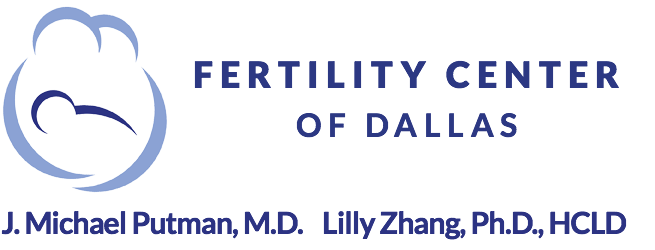
14 Jan 5 Egg Freezing Myths Debunked
Are you on the fence about whether to freeze your eggs? We recommend connecting with a fertility center ASAP to learn more about whether it’s the right move for you. You can also read our post, Egg Freezing: Am I a Candidate?
5 Baby-Blocking Myths About Egg Freezing & Fertility Preservation
In the meantime, don’t let any of these top egg freezing myths stop you from doing one of the best things you can do to preserve your future fertility.
1. Egg freezing is only for women who have cancer.
You are correct that egg freezing and fertility preservation were initially created to support young women who had medical diagnoses or treatment recommendations that threatened their fertility. Then, as more and more women delayed motherhood to pursue personal career goals, the egg freezing industry has grown to accommodate them.
While fertility preservation still serves women with medically threatened fertility, it’s serving even a larger population of women who want to have greater fertility insurance in the future.
2. Freezing my eggs now means I have to do IVF
If you choose to use your frozen eggs later, you will have to use IVF to get pregnant. However, at that point, you also benefit from the IVF success rates associated with the age of your egg – rather than your birth date (more on that below).
That said, plenty of women who freeze their eggs decide to get pregnant on their own before using their eggs, and that’s fine, too. In that case, if you complete your family before you need your eggs, you can choose to donate them or have them thawed and discarded.
3. If I freeze my eggs, I won’t have enough left later
As always, we are very careful when we retrieve eggs from patients planning to use them in their later 30s or 40s. Any woman opting to freeze eggs must go through a physical that includes AMH testing.
AMH fertility testing results are a fairly reliable indicator of how many eggs you have left. Therefore, if we detect you have low levels of AMH, we would not recommend donating your eggs unless you’re choosing to do so intentionally, knowing you won’t have as many left later. In fact, low AMH levels combined with a low antral-follicle count results in a fertility consultation to determine your best family building options.
For healthy women, the retrieval of the 20 or so eggs we freeze does nothing to diminish future egg stores, as you’ll still have thousands and then hundreds of viable eggs left into your 30s.
4. Egg retrieval is painful and requires lots of time off work
When you participate in egg freezing, you proceed the same way a woman does through the first phases of IVF treatment, which means you’ll have several in-person appointments to attend. However, fertility centers are used to accommodating busy, working women, so we do our best to create appointments around your work schedule whenever possible.
To retrieve multiple eggs at one time, we use injectable fertility medications that hyper-stimulate your egg follicles. Unfortunately, this results in side effects similar to a rough bout of PMS (moodiness/irritability, bloating, cramping, tenderness in the breast and abdomen).
Read Common Side Effects of Ovarian Stimulating Medicines for more specifics about what to expect.
While the symptoms of ovarian hyperstimulation aren’t always pleasant, it’s very rarely more than “uncomfortable,” and symptoms disappear as soon as you stop taking the meds and we’ve retrieved the eggs.
5. You can freeze eggs any time during your 30s
We recommend freezing your eggs in your late 20s to early 30s. Three factors matter most when it comes to getting pregnant: the egg’s viability, sperm viability, and a woman’s overall/reproductive health.
The older you are, the more likely your eggs are to have genetic or chromosomal abnormalities that prevent conception, increase miscarriage rates, or grow into a baby born with congenital disabilities.
Fertility rates decline fairly sharply for women 35-years and older, and IVF rates are notably higher for healthy women who use eggs that were 34-years old or younger when they were retrieved. Therefore, retrieving and freezing eggs between the ages of 29 and 34 is the best way to maximize your investment for the retrieval process and reasonable annual storage fees.
Read 5 Facts About Egg Freezing for more information about the egg retrieval, freezing, and storage process. You can also contact the Fertility Center of Dallas to speak to someone in person. 214-823-2692.






